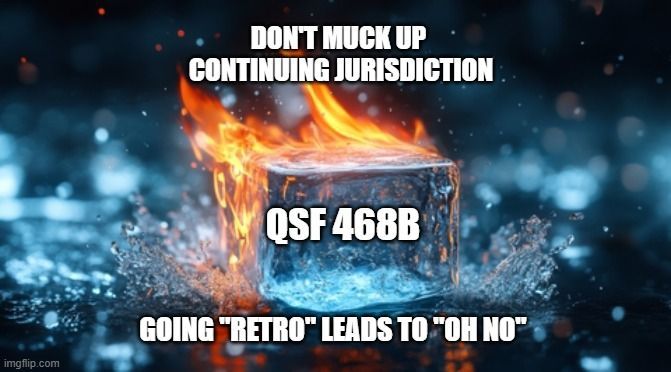The SECURE Act and Settlement Planning
"Here's Looking At You Kiddie" and the New "Rule of 72"



4structures.com, LLC
The Structured Settlements and Settlement Planning Company
43 Harbor Drive, #309 Stamford, CT 06902 USA
888-325-8640
646-849-1588
New York City (Manhattan, Bronx, Brooklyn, Queens, Staten Island), Westchester(NY), Nassau County (NY) , Suffolk County on Long Island (NY), Albany County (NY), Orange (NY) , Erie (NY), Oswego County (NY), Steuben County (NY), Broome County (NY), Onondaga County (NY), Monroe County (NY), Fairfield County (CT), New Haven County (CT), Hartford County (CT) New London County (CT), Tolland County (CT), Windham County (CT), Litchfield (CT), Middlesex (CT) , Bergen County (NJ), Middlesex County (NJ), Ocean County (NJ)
Structured Settlement Experts and Settlement Planning Consultants for settlements from claims or lawsuits arising out of Aviation accidents, Maritime Accident Claims or Lawuits, Medical Malpractice, settlements involving Serious Personal Injury, Wrongful Death, Wrongful Incarceration, Employment, Civil Rights, Discrimination of any type, Auto accidents, Motorcycle accidents, Workers' Compensation, Product Liability, Real Estate Liability, Construction Defect claims or lawsuits, Intellectual Property Claims or Lawsuits, Landlord/Tenant,
Property, Attorney Fee Deferrals, Funding Agreements, Structured Installment Sales, Environmental Liability and Commercial Dispute settlements.
Structured settlements and structured settlement brokerage, settlement planning, Sudden Money®, financial transitionist, funding agreements and insurance related services provided by 4structures.com LLC.
Financial Advisory Services provided through Groove Financial Advisors , LLC, and its service partners.
Fiduciary services, including the custody and administration of trusts provided via service partners.
Securities and Insurance Products are NOT Insured by the FDIC, nor by any other Federal or State Government Agency, are NOT a Deposit of and are NOT Guaranteed by a Bank or any Bank Affiliate, and securities MAY lose value.
4structures (USPTO Reg. 4640532) , 4structures.com (USPTO Reg. 4640531) , We Know Structured Settlements (USPTO Reg. 3089738),
Because Certain Sells (USPTO Reg. 6237309) and We Know Structured Sales (USPTO Reg. 3490489), are Registered Trademarks of 4structures.com LLC.
John Darer is a Registered Trademark of John Darer (USPTO Reg. 4674907)
John Darer California insurance license 0761076
4structures.com LLC CA license OF19785 d/b/a 4structures Settlement Insurance Agency